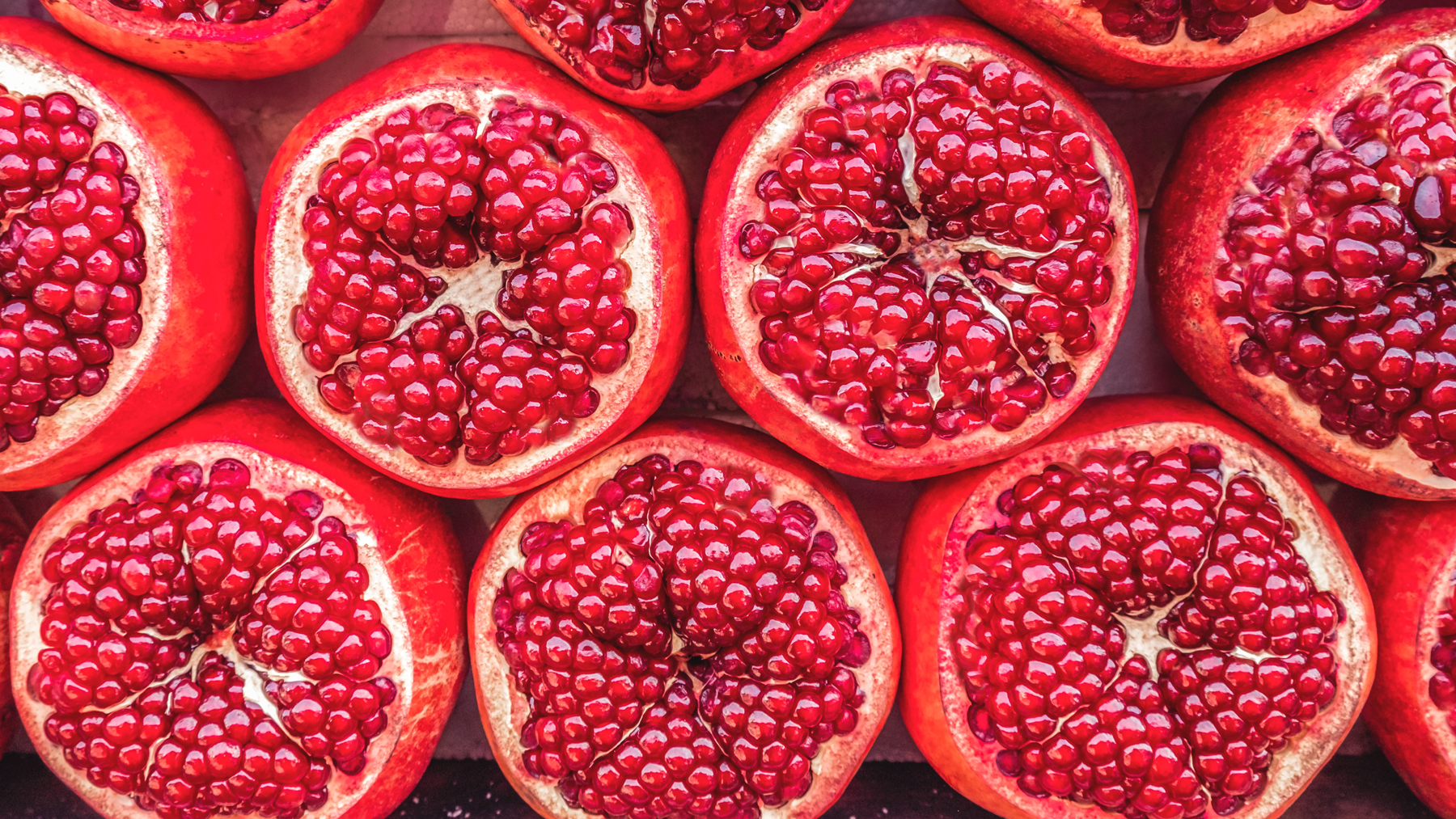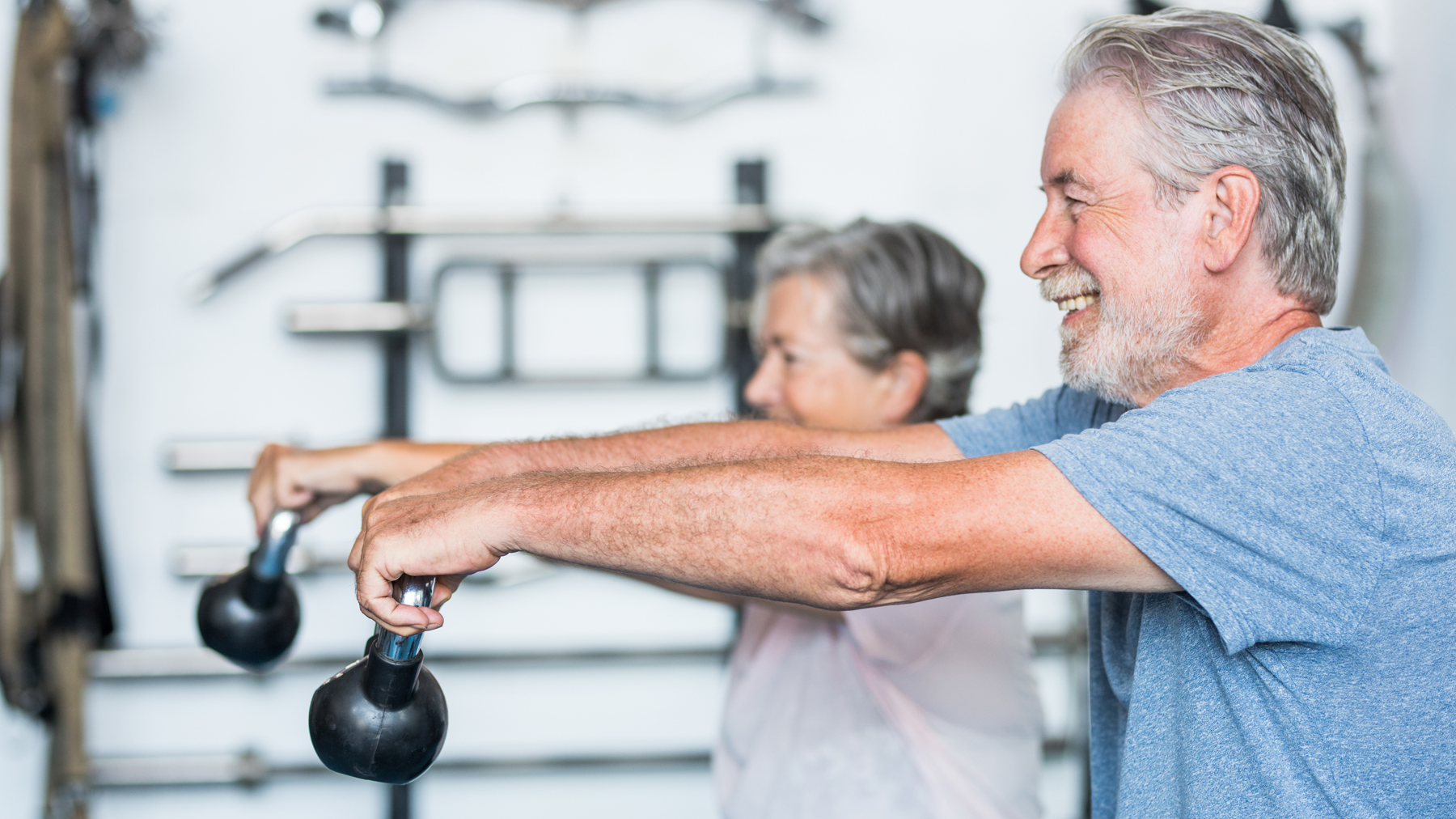Why pomegranate can help boost muscle performance as you age, according to studies
Find out what research has to say about pomegranate and healthy aging. Plus, here's how to can consume more of it


Start your week with achievable workout ideas, health tips and wellbeing advice in your inbox.
You are now subscribed
Your newsletter sign-up was successful
There's lots of measures you can take to help fight off aging and diet is a manageable and sustainable place to begin. Amongst the various diets, foods, and supplements that science recommends you adhere to as you age, recent research reveals the positive effect pomegranate can have on muscle performance for older adults.
You may already be familiar with the Mediterranean diet and its potential to lengthen people's lifespans or the health benefits of taking daily vitamins like the best fish oil supplements and things like the best vitamins for women over 50.
But have you heard of something called urolithin A and how it might help to promote muscle endurance in older adults? Urolithin A is a byproduct of your gut bacteria and can be produced via a diet rich in complex polyphenols such as pomegranate, berries, and nuts. For anyone unsure of what polyphenols are, they are known as reducing agents which means they act as antioxidants to protect your body's tissues from oxidative stress and other risks such as cancers or inflammation.
If you don't already often eat pomegranate, now is the ideal time to start. Especially if you want to protect your muscles as you age, helping to ensure you help your body to function and stay active for as long as possible.
And if you need evidence to prove that this is actually relevant to aging adults, science has it. This 2018 study discovered that a group of men aged 60 or over experienced reductions in muscle damage and inflammation levels after drinking or supplementing pomegranate for 15 days.

Can you supplement urolithin A instead of consuming pomegranate regularly?
Perhaps pomegranate isn't your ideal snack or isn't in season where you are right now. That's ok since you can actually supplement urolithin A in tablet form.
Another team of researchers brought together data in a new research paper offering promising results from supplementing urolithin A into the diet. They found that seniors who supplemented urolithin A for four months experienced improvements in muscle endurance.
Start your week with achievable workout ideas, health tips and wellbeing advice in your inbox.
They recruited a group of adults aged 65 or over and supplied them with either a daily supplement of urolithin A or a placebo. The investigators predicted that the supplementation of urolithin A could be able to improve muscle function as well as increase the production of adenosine triphosphate (something that te body produces to help cells perform various functions).
While the results didn't show any changes to the participants' production of adenosine triphosphate, the results did lead the researchers to conclude that long-term supplementation of urolithin A had a beneficial effect on muscle endurance and on biomarkers of mitochondrial health.
Therefore, the consumption of urolithin A could be a promising solution to fight age-associated muscle loss. The lead author of the study, David Marcinek, said, Marcinek said, "These results are still exciting because they demonstrate that just taking a supplement for a short duration actually improved muscle endurance. Fatigue resistance got better in the absence of exercise."
It is good to note that exercise shouldn't be ruled out of the picture when turning to supplementation—health-related tablets like this are there to complement a healthy lifestyle and not substitute other elements of one.
Another way you can promote muscle growth across your body as you age is through regular walking. Whether this is walking on one of the best treadmills or stepping outdoors in a pair of best shoes for walking, this activity is great for building up strength in major muscle groups like the quads and glutes.
Jessica is an experienced fitness writer with a passion for running. Her career in journalism began in local news and she holds a Masters in journalism. Jessica has previously written for Runners World, penning news and features on fitness, sportswear and nutrition.
When she isn't writing up news and features for Fit&Well covering topics ranging from muscle building, to yoga, to female health and so on, she will be outdoors somewhere, testing out the latest fitness equipment and accessories to help others find top products for their own fitness journeys. Her testing pairs up nicely with her love for running. She recently branched out to running 10Ks and is trying to improve her time before moving on to larger races. Jessica also enjoys building on her strength in the gym and is a believer in health and wellness beginning in the kitchen. She shares all of this on her running Instagram account @jessrunshere which she uses for accountability and for connecting with like-minded fitness lovers.
